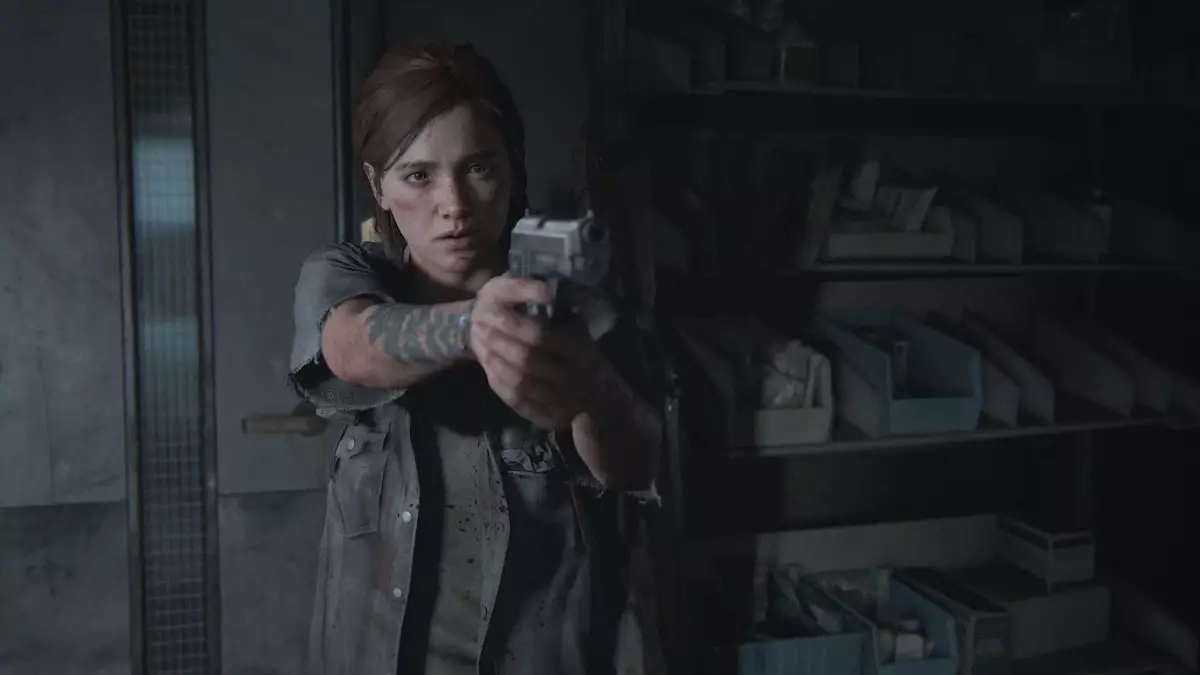In a realm where sequels often feel like second nature—an automatic response to commercial success—Neil Druckmann, the president of Naughty Dog, has thrown a wrench into the machinery of expectation. During a recent interview, he implied that any potential sequel to The Last of Us Part 2 may be on more precarious ground than previously imagined. For a franchise that is lauded for its storytelling brilliance and emotional depth, this uncertainty raises significant questions about artistic integrity versus financial incentive in the gaming industry.
The gaming world has seen its fair share of sequels that follow a formula rather than a vision, often sacrificing originality for familiarity. Druckmann’s hesitancy signals a refreshing yet alarming departure from this trend. Rather than hastily capitalizing on past successes, he appears committed to ensuring that any potential continuation does not compromise the artistic essence of the franchise. The potential for stagnation looms large when creators feel pressured to deliver, resulting in stories that lack the nuance and innovation that initially captivated players. In this light, Druckmann’s shift in narrative regarding The Last of Us Part 3 exemplifies a conscious refusal to adhere to commercial pressure, even if it comes at the potential cost of an eagerly awaited sequel.
Impact on Creative Directions
Naughty Dog’s announcement of a brand new IP, Intergalactic: The Heretic Prophet, marks a pivot towards exploring new artistic horizons. This decision, while intriguing, raises questions about the feasibility of stretching a studio’s creativity across multiple franchises. Can they effectively strive for innovation without forsaking the beloved narratives that birthed their reputation?
The creative team behind The Last of Us has thrived on the emotional stakes embedded in their work. With their focus now directed towards an entirely different universe, one wonders whether they might lose the essence that made them standout storytellers. The concern here is twofold: first, that the studio might be spreading itself too thin, thereby diluting the quality of each project; and second, that they risk alienating a fanbase that has invested emotionally in the characters and themes of The Last of Us.
While pushing boundaries is commendable, it also has its pitfalls, particularly when it risks trifling with the connections we’ve built with the stories and characters that shaped our gaming experiences.
Television Adaptations and Their Influence
Adding another layer of complexity to this unfolding saga is the HBO adaptation of The Last of Us, whose success has catapulted the franchise into the mainstream cultural dialogue. Druckmann’s assertion that further games are not guaranteed suggests a shift in focus: adapting storytelling methods for different media rather than merely expanding upon existing narratives in games.
Yet, this raises an important question: if gaming narratives can be adapted into television and maintain their integrity, what does that mean for the future of the gaming medium itself? Are we entering an era where games will find themselves secondary to their cinematic counterparts, leading to a decline in original video game storytelling?
While successful adaptations can breathe life into stagnant franchises, they can also divert attention from the medium that gave birth to them. Druckmann’s comments may reflect his concern over maintaining narrative strength in the face of such distractions. This transition can be perilous if it means valuing a visual narrative over the intricate storytelling that defines video games.
The Balance Between Commercial Viability and Artistic Integrity
The gaming industry loves to chase trends, and there’s a risk that the pressure to produce hits can result in compromised storytelling. Druckmann’s remarks may indicate a broader sentiment within the industry—a recognition that creative integrity must be prioritized over relentless commercial efficiency.
However, the uneasy reality lies in the conflict between commercial viability and creative expression. Pressure from investors and publishers can create a culture of fear, leading to rushed sequels that lack soul. Druckmann’s hesitancy to guarantee a continuation of The Last of Us saga rightfully stands as a statement: good art cannot be manufactured on a deadline.
As the lines blur between gaming and other forms of media, maintaining the essence of storytelling in gaming is vital. It’s a balance that requires effort, foresight, and sometimes, the courage to walk away from lucrative opportunities in favor of preserving an artistic niche.
The Road Ahead for Naughty Dog
As developers and storytellers, the team at Naughty Dog is at a crossroads. In pursuing Intergalactic: The Heretic Prophet, they are signaling a willingness to explore uncharted territories. However, this path raises myriad implications for their signature franchises. Their decision could either lead to pioneering new narratives or risk fragmenting the dedicated community that has followed The Last of Us with unwavering faith.
The gaming industry benefits from creators who dare to challenge conventions, yet they must also be cautious not to alienate their core audience. Amidst expansion, it’s crucial to remember what made the brand resonate in the first place—a commitment to narrative depth and emotional resonance. These qualities cannot be sacrificed at the altar of expansion if the franchise is to remain a beacon of innovation in storytelling.


Leave a Reply